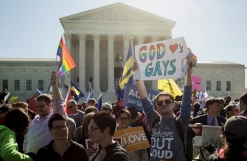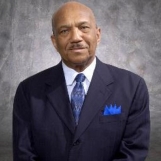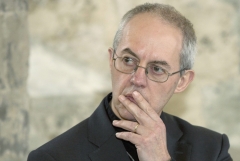Following the legalisation of same-sex marriage in the United States, Christian colleges nationwide are anxious on how the ruling will affect their policies and tax-exempt status.
The Association of American Universities (AAU)—an organisation of 62 colleges and universities including Harvard University, Princeton and Massachusetts Institute of Technology—said majority of private and public colleges and universities are tax-exempt because of their educational purposes.
But it said that "as tax-exempt entities, universities and colleges are regulated by both the Federal government as well as State governments.
"Each year, these institutions must demonstrate their compliance with federal and state laws and regulations that govern tax-exempt entities through tax filings, audits, and public reports," it said.
At least one of the Christian universities, the Cornerstone University in Grand Rapids, Michigan, has affirmed its policy that marriage is between a man and a woman.
"And, in light of this decision we reaffirm our commitment, as stated in the Cornerstone Confession, that Adam and Eve's 'union as man and woman models God's design for marriage and perpetually stands as God's loving and righteous will for all sexual intimacy," Cornerstone said regarding the Supreme Court ruling.
Its student handbook prohibits "romantic relationships between members of the same gender."
While the Supreme Court decision can't compel Christian educational institutions to change their policies, their tax exemption status may become an issue.
"The ruling itself doesn't actually have any impact at all outside of recognising same-sex marriage as a fundamental right," said Frank Ravitch, a professor at Michigan State University's College of Law.
He added, "At least for religiously affiliated entities, the risk isn't interfering with their beliefs or practices. It's going to be more a question of whether or not they're going to be subject to revocation of tax-exempt status down the road."
Last June, Michigan Live reported, before the Supreme Court ruled on same-sex marriage, 74 heads of Christian colleges and associations wrote to Republican House Speaker John Boehner and Republican Senate Majority Leader Mitch McConnell and expressed their concern about losing their tax-exempt status if the High Court ruled in favour of same-sex marriage.
"We write to express our deep concern with the potential loss of tax-exempt status for educational institutions should the Supreme Court find constitutional legitimacy for same-sex marriage," they said.
It was based on the answer of Solicitor General Donald Verrilli to a question from Supreme Court Justice Samuel Alito during the April 28 oral arguments on same-sex marriage.
Alito cited the case of Bob Jones University in 1982 wherein the Supreme Court upheld the decision of the IRS to revoke its tax-exempt status because it barred interracial relationships on campus.
He asked Verrilli if this would also apply to a college or university if it opposed same-sex marriage.
Verrilli answered, "You know, I—I don't think I can answer that question without knowing more specifics, but it's certainly going to be an issue. I—I don't deny that. I don't deny that, Justice Alito. It is—it is going to be an issue."
They said that if a federal law is enacted that would ban discrimination because of sexual orientation, "Christian institutions that offer student or constituent housing could be mandated to provide such to same-sex couples."
They urged Boehner and McConnell to support the Government Non-Discrimination Act bill, "which would ensure that the federal government cannot discriminate or take action against private entities because they act in accordance with a moral or religious belief that marriage is between a man and a woman."
The Council for Christian Colleges and Universities, which has 121 member campuses in the US, strongly believes that the Supreme Court's affirmation of the First Amendment will protect Christian colleges and universities from losing its tax-exempt status.
"These full protections for religious individuals and organisations to exercise their beliefs privately and publicly are not diminished by expanded marriage rights," it said.
It added, "It stands to reason, then, that the tax-exempt status and religious hiring rights of religious institutions will be protected when they advance the religious mission of a college or university."


















